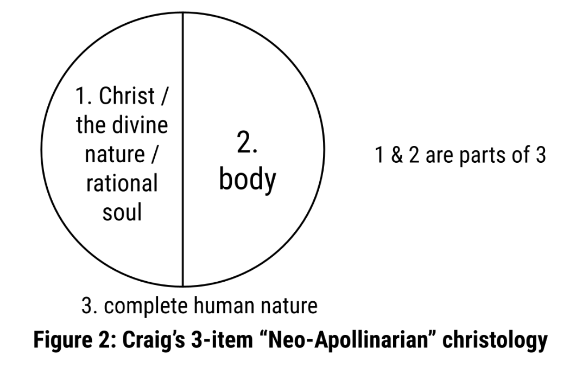
It’s the 20th anniversary of Moreland’s and Craig’s much-read Philosophical Foundations for a Christian Worldview. (For a trip down memory lane, you can check out a recent interview for the Reasonable Faith Podcast. Part 2 here.)
Dr. Craig was the primary author of the chapters on Trinity and Incarnation. These have received a lot of attention, not always positive, at the popular level and among the apologetics community. But to my knowledge up till now those chapters have not been engaged with at length by analytic theologians.
But that changes this year. Dr. Craig and I, along with Dr. William Hasker, and Dr. Beau Branson, are currently writing a four views book on the Trinity which is being edited by our friend Dr. Chad McIntosh. This, I believe, should be out by the end of 2023. There, Dr. Craig’s views on the Trinity will enjoy a stress test at the rest of our hands.
And in a just-published article in TheoLogica (free download here) I give Craig’s unique, “Neo-Apollinarian” Incarnation theory a thorough evaluation. These thoughts of mine started with this podcast episode (part 2), and then I honed the arguments with the help of some good journal referees. I think the paper advances the ball on a couple of fronts, and there are a number of points here relevant to evaluating other sorts of two-natures speculations about the Lord Jesus Christ.
Abstract: William Lane Craig’s “Neo-Apollinarian” christology aims to give us a model of Incarnation which seems not to imply any contradiction, and which fits well with the Bible and with at least the creed from the fourth ecumenical council. It is argued that the theory fails to achieve any of these goals.
I look forward to Dr. Craig’s counter-arguments. In part two of his Reasonable Faith interview with Dr. Moreland, he mentions that he is focusing on writing a multi-volume philosophically-informed systematic theology. He says there that he’s already written the portion on Trinity. Perhaps this new engagement should help to fuel his section on Incarnation.

Hello! Would unitarians say that the statement “Jesus is God” is correct in a representative or ambassadorial sense?
Generally speaking, yes. Look, the lexicons tell us that the Greek word theos is used in different senses, and that, rarely, it is used of Christ in distinction from God, e.g. Hebrews 1:8. See also Jesus’ point about theoi in John 10.
Thanks for your comment, Greg. Some two natures theorists have had a man in their Christology, when they understand the “human nature” to be a man. But then they will also have the eternal Son! And sometimes also this two-natured fellow. Craig steers around such options by making the eternal Son the human soul of the incarnate Christ. But as I explain in detail here, it seems that such a one will look like a man but won’t actually be one.
There is a sense in which docetism mutated and survived as Christological Orthodoxy: a “man” (eternal divine Person mysteriously united to a body and soul which don’t compose a man) who is not a man, well, is not a man! Craig stipulates, against the mainstream traditions, that this eternal divine Son was also always a human, even before incarnating – but then for multiple reasons it seems the account implies contradictions, and so must be false.
As this paper explores, Craig is acknowledging some real problems and is making some bold moves to solve them. But in my view the resulting account just doesn’t do what it’s been advertised to do.
Dr. Dale,
Well certainly the fundamental problem will always remain – they simply do not have a genuine man… no matter how they try to gussy up their Christology with fancy words or gimmicks.
In contrast, the authors of the NT Canon do understand Jesus to be a genuine man and state that repeatedly, formally and clearly.
One only has to ask the simple question – can that so called rational soul and human nature function totally independently of an incarnated deity just like any man can function independent of an incarnated deity….
I look forward to them accomplishing that without advocating Nestorianism…?
Comments are closed.